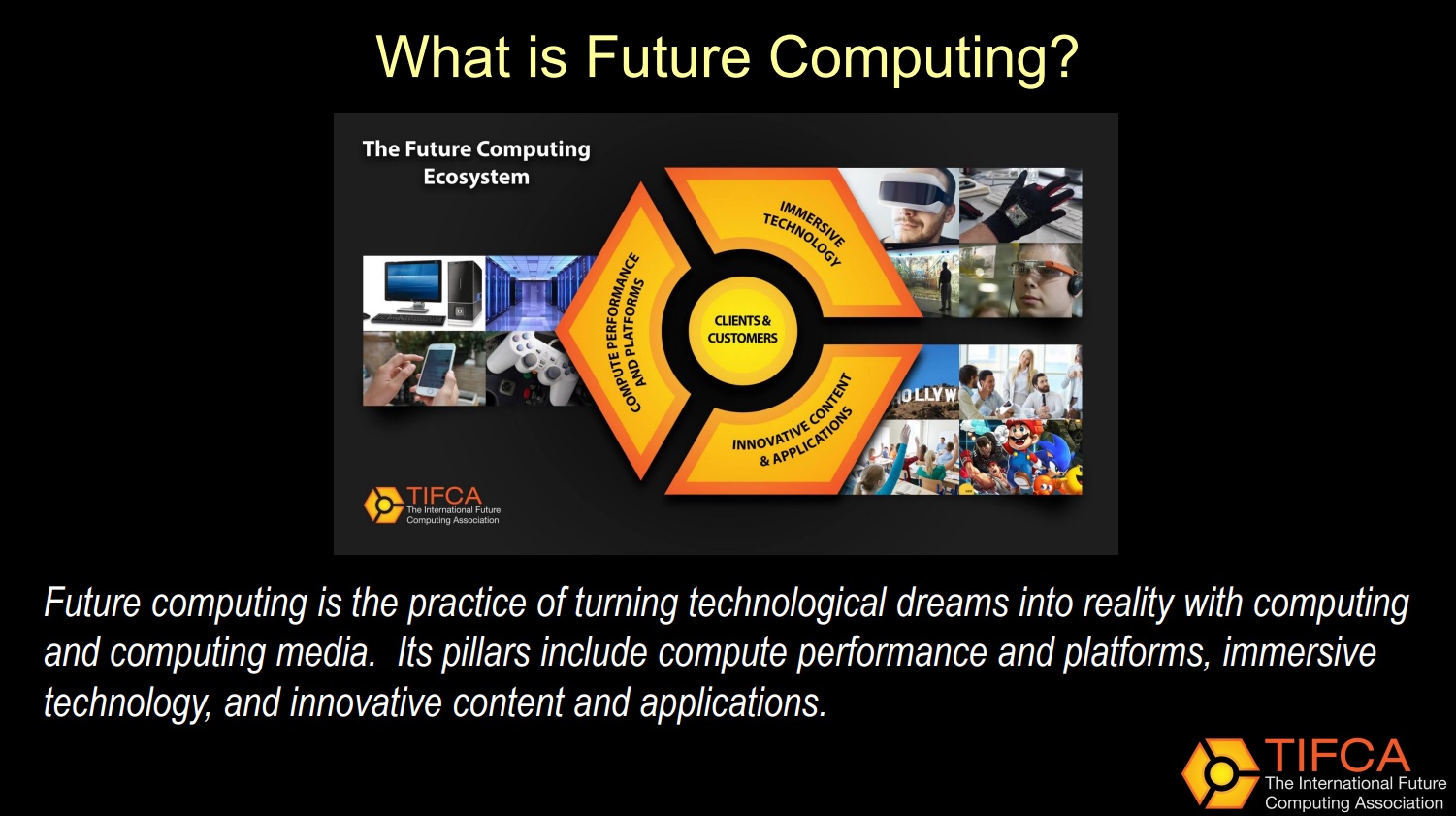Sometimes it’s good to think about the future. And that’s what a group of thinkers did at The International Future Computing Association, which held a conference recently at the Computer History Museum in Mountain View, California.
The event was about the coming era of any place, any time, and any device user experiences delivered both on devices and via the cloud. To make this happen, we need a full ecosystem of partners across computing, immersive technology, content and applications, and infrastructure, according to TIFCA, which is chaired by partners such as Intel, Advanced Micro Devices, and M2 Insights. TIFCA’s executive director is Neil Schneider, who is also the founder of Meant to be Seen.

Unlock premium content and VIP community perks with GB M A X!
Join now to enjoy our free and premium membership perks.
![]()

![]()